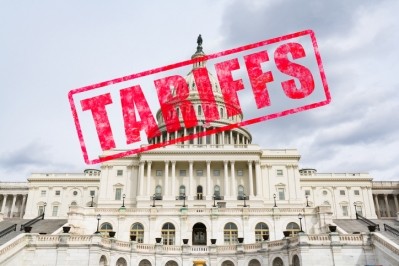US soybean producers oppose trade tariffs

The American Soybean Association (ASA), National Corn Growers Association, Farmers for Free Trade and the US Grains Council (USGC) were among the feed growers associations to raise concerns regarding the tariffs signed into action on Thursday by US President Donald Trump. The tariffs are set to go into effect in 15 days.
The action imposed a 10% import tariff on aluminum and a 25% tariff on steel for most countries. Currently, US neighboring countries Canada and Mexico are being excluded from the tariffs and there is some discussion of a process being established to exempt other counties.
The US is currently in the middle of a renegotiation process regarding a free trade deal with both Canada and Mexico. Both countries are major trading partners with the US and Canada is reported to be a major exporter of steel to the US.
The imposition of the tariffs is considered to potentially lead to retaliation by affected countries on agricultural exports, including soybeans, said the ASA.
“These tariffs are a disastrous course of action from the White House,” said John Heisdorffer, president of ASA in a statement. The association has been meeting with members of the commerce and treasury departments along with officials at the US Office of the Trade Representative (USTR) and White House staff to discuss the issue, he added.
“It is unfortunate that our input was not taken into account given the announcement today,” he said. “While we are deeply disappointed and concerned, we reaffirm our commitment to sit down with the president and communicate the importance of trade for soybean farmers.”
“There is absolutely a way to encourage growth in domestic industry without cannibalizing the success of agricultural trade,” he added. “With these tariffs, the administration has taken the opposite approach, and sacrificed the progress and potential of farmers.”
Retaliation concerns
Of particular concern is that China could retaliate against the US by seeking another market for its soybean imports, said the ASA. China has been a major importer of US soybeans.
“[The tariffs] may lead to retaliation by one or more of our valuable trading partners, which in turn will kneecap demand for soybeans in a time when the farm economy is struggling,” said Heisdorffer. “We have heard directly from the Chinese that US soybeans are prime targets for retaliation.”
“The idea that we’re the only game in town, and these partners have no choice but to purchase from the US is flatly wrong,” he said. “Our competition in Brazil and Argentina is eager to capitalize on whatever openings these tariffs create for them in markets like China and elsewhere.”
The ASA is not the only feed and grain industry member to voice concerns regarding the tariffs and the potential for retaliation from trading partners. Farmers for Free Trade and the US Grains Council also said they had concerns.
“We have tremendous concern about the global ramifications of any new tariffs on ag exports,” Tom Sleight, president and CEO of the USGC said in a release. “Agriculture markets are global, and our members – both farmers and exporters – will feel the impacts immediately when new tariffs from our trading partners impact demand. Our products can compete on price and quality anywhere in the world, but the domino effects of new tariffs could make that much, much harder.”
Additionally, there are some concerns regarding what the degradation in trade might mean in the long-term as the tariffs could create economic headwinds, said David Widmar, agricultural economist and researcher with the Center for Commercial Agriculture at Purdue University. “There is some truth in that but you don’t want to be the last item bought – usually that’s a not good price situation,” he added.
“When you’re the last person people want to buy from, you tend to be the residual carrier of ending stocks and you’re sort of feast or famine,” he told FeedNavigator.
China as a buyer, or reducing the amount the country imports also would mean lost growth in the future, he added












